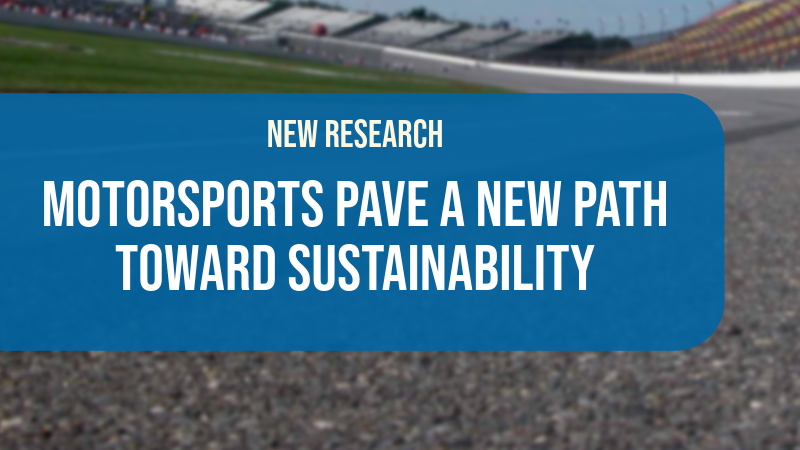Green racing: Motorsports pave a new path toward sustainability
February 9, 2024

By Virginia Harrison, Clemson University, and Rosalynn Vasquez, Baylor University
As the public’s environmental consciousness grows, more organizations are advocating for a sustainable future. Over the years, the climate crisis has gained momentum from various leaders and influencers, such as scientists, celebrities, religious leaders and corporations.
Sports organizations also have a unique power, position, and responsibility to promote prosocial, ethical conversations across the globe. As a new change agent, motorsports series have been taking big steps toward adopting a sustainable model that includes a shift away from harmful fossil fuels and plans for a new race toward long-term sustainability.
The growing popularity of Formula E and Extreme E demonstrates a new era for motorsport as their sustainability model provides insight into a future of using cutting-edge technology and less environmentally damaging fuel. Motorsport is a particularly interesting entity to examine because of its enormous carbon footprint, global appeal and fandom, vast capital and resources to make an impact, and its multiple stakeholder relationships (e.g., fans, sponsors, teams, automotive industry partners, etc.).
However, there is little research examining motorsport and sustainability, especially through a public relations theoretical framework. Therefore, this study fills a timely gap in sustainability communications by leveraging two theories (relationship management and stewardship) to explain how motorsport organizations are communicating about the sustainability practices and initiatives at their teams, series, or events, managing different stakeholder relationships, and promoting the Sustainable Development Goals (SDGs).
In this context, we interviewed 11 communication practitioners in motorsport about their perceptions of sustainability communications in their organizations and analyzed 37 industry documents centered on sustainability.
The first research question examined how practitioners in motorsport currently defined sustainability. Overall, practitioners mainly indicated that sustainability consisted of real, tangible actions that would promote new technology, benefit the automotive industry, and reduce the sport’s carbon footprint. In other words, practitioners advocated for adopting a sustainability model not just on the track (visible), but also off the track (invisible) and focused on the infrastructure surrounding the sport.
The second research question examined how sustainability is being communicated. Practitioners revealed three key themes: 1) sustainability communication needs to be proactive; 2) sustainability should be authentic; and 3) sustainability needs to demonstrate long-term commitment to addressing climate issues. In other words, it is no longer sufficient for motorsport to talk about its green credentials or plans in hope of generating good public relations—it needs to be integrated into their strategic plans and led by knowledgeable leaders and teams.
The third and final research question addressed how motorsport professionals manage different stakeholder relationships in terms of promoting sustainability. Practitioners identified two key themes: 1) various stakeholder groups need different messaging, especially when segmented by age; and 2) diversity efforts are naturally aligned with sustainability efforts. In terms of stakeholder groups, young adults emerged as one of the most vocal supporters of sustainability. In terms of diversity, there is an opportunity to become more inclusive and strengthen relationships with different stakeholders (such as women and people of color) around the world in a sport that has traditionally been dominated globally by Caucasian men.
In terms of practical implications, this new study found evidence that sport is considered an important vehicle for accomplishing multiple SDGs: 5 (gender equality), 9 (industry, innovation, and infrastructure), 10 (reduced inequalities), 12 (responsible consumption and production), 13 (climate action), and 16 (peace, justice, and strong institutions).
While there is still some way to go before all motorsports become completely green, this study revealed that they are on a committed path to making motorsport more eco-friendly without compromising the thrill of the races or the loyalty of their diverse audiences.
For further information on this study, please email Virginia Harrison at vsharri@clemson.edu or Rosalynn Vasquez at rosalynn_vasquez@baylor.edu. This project was supported by a 2022 Page/Johnson Legacy Scholar Grant from the Arthur W. Page Center.

